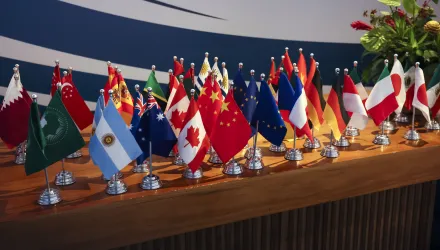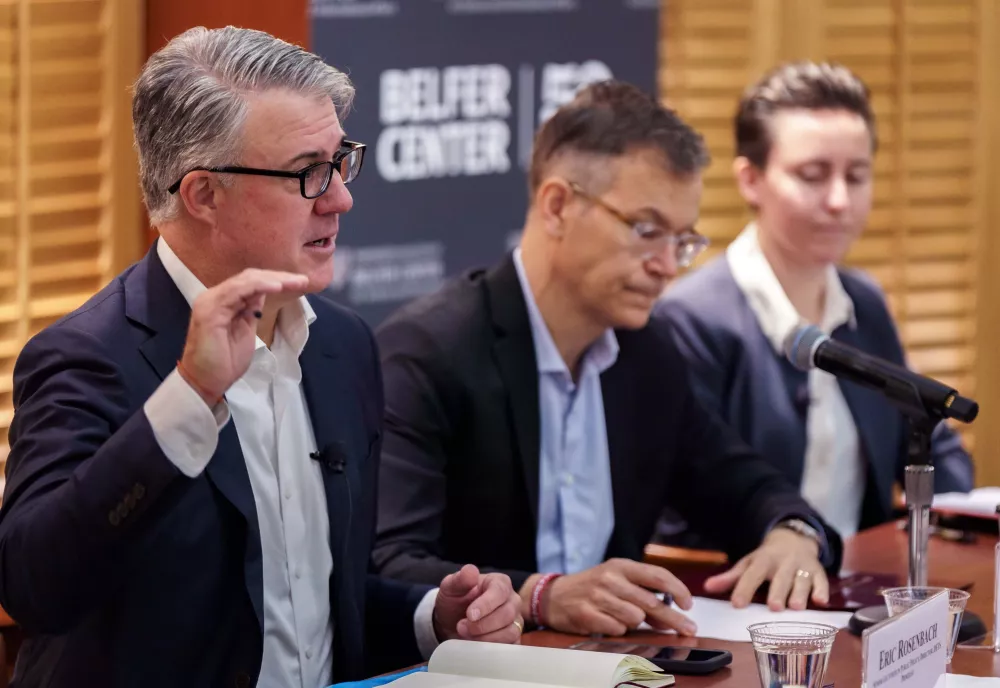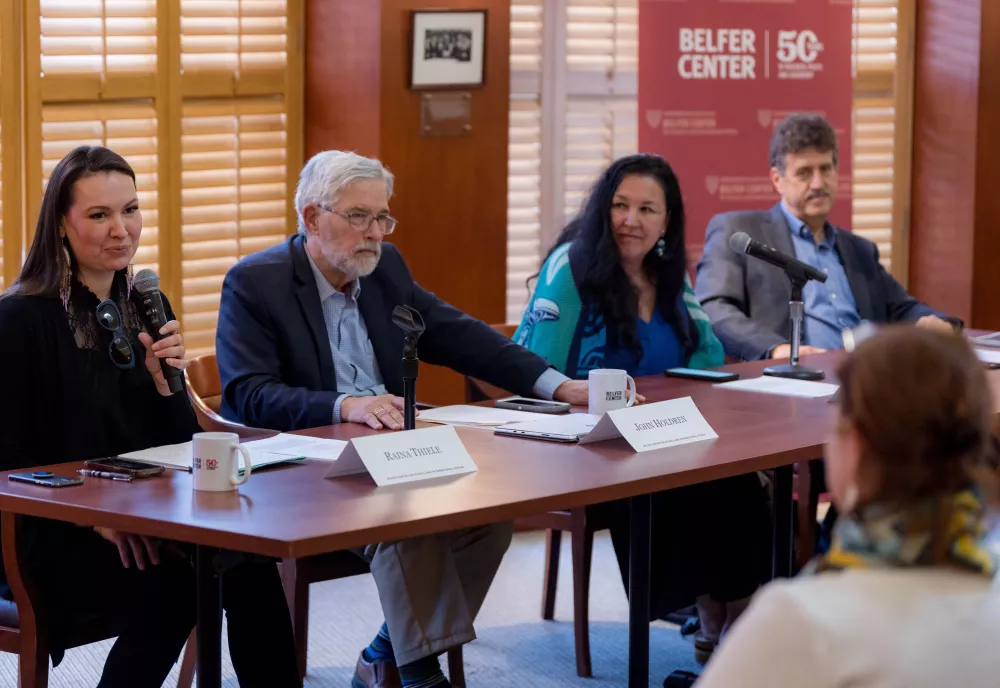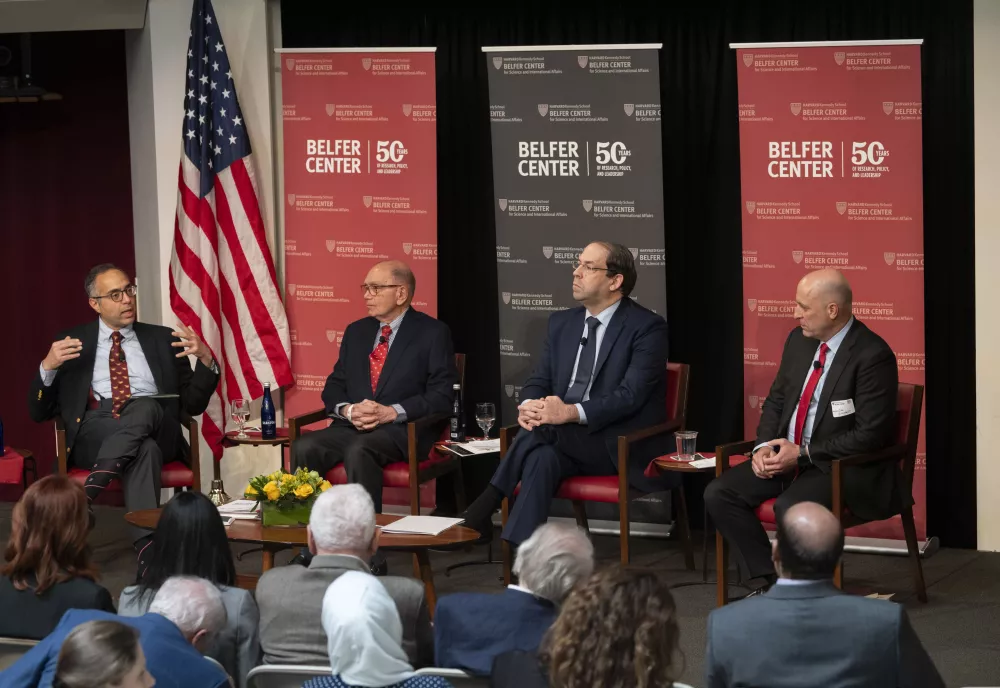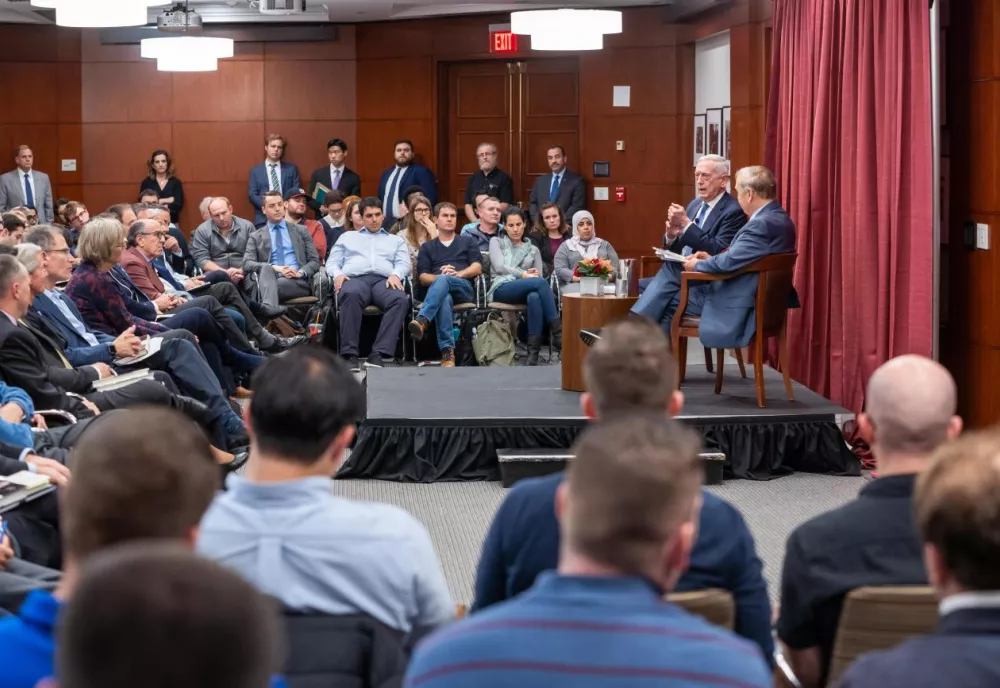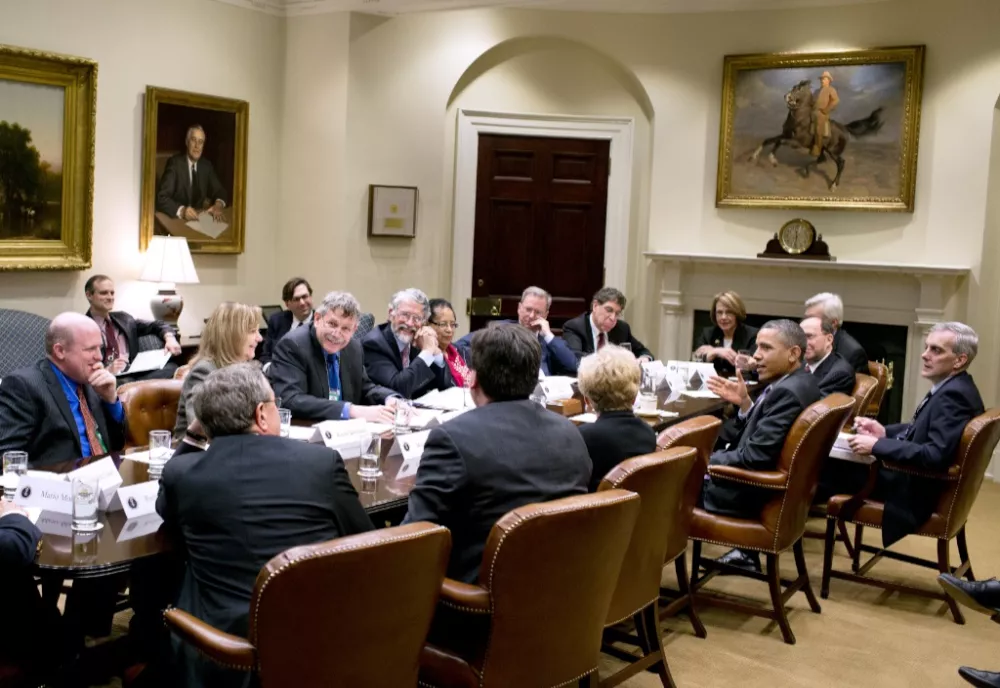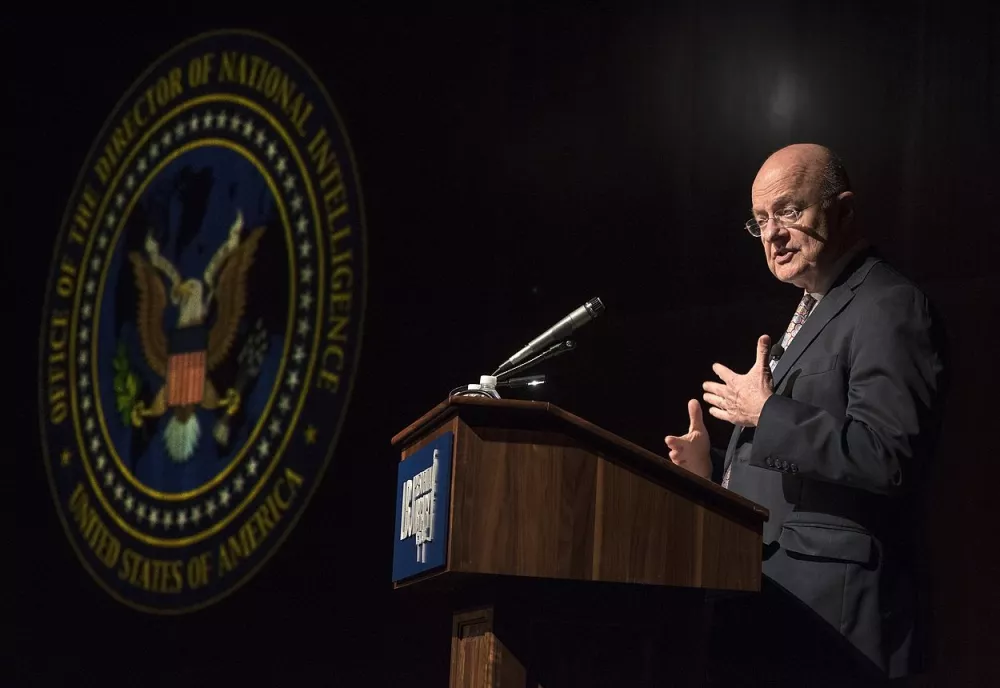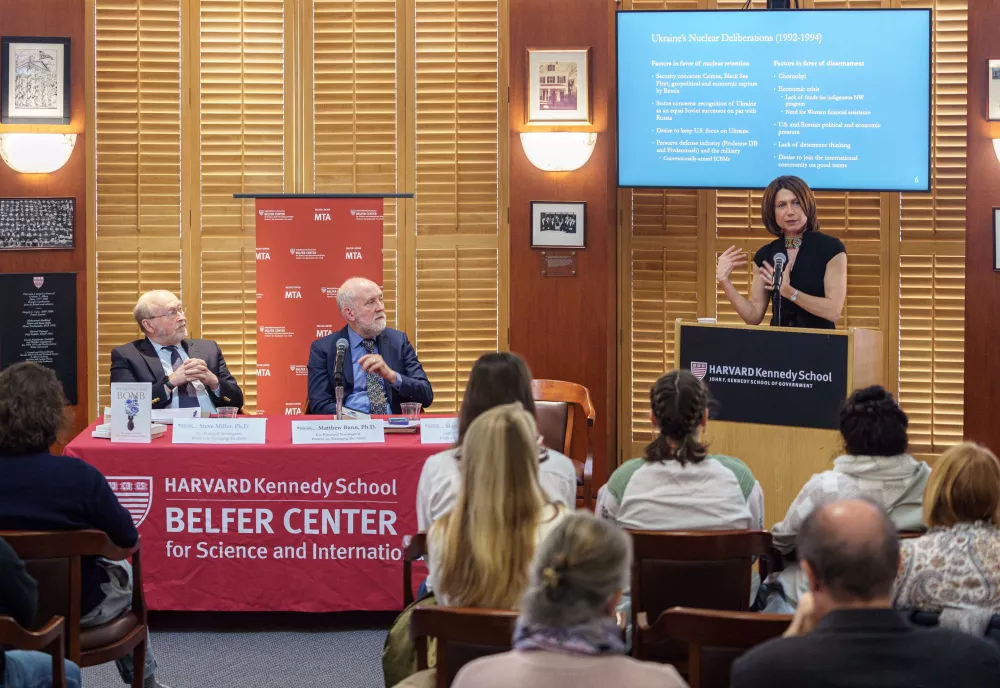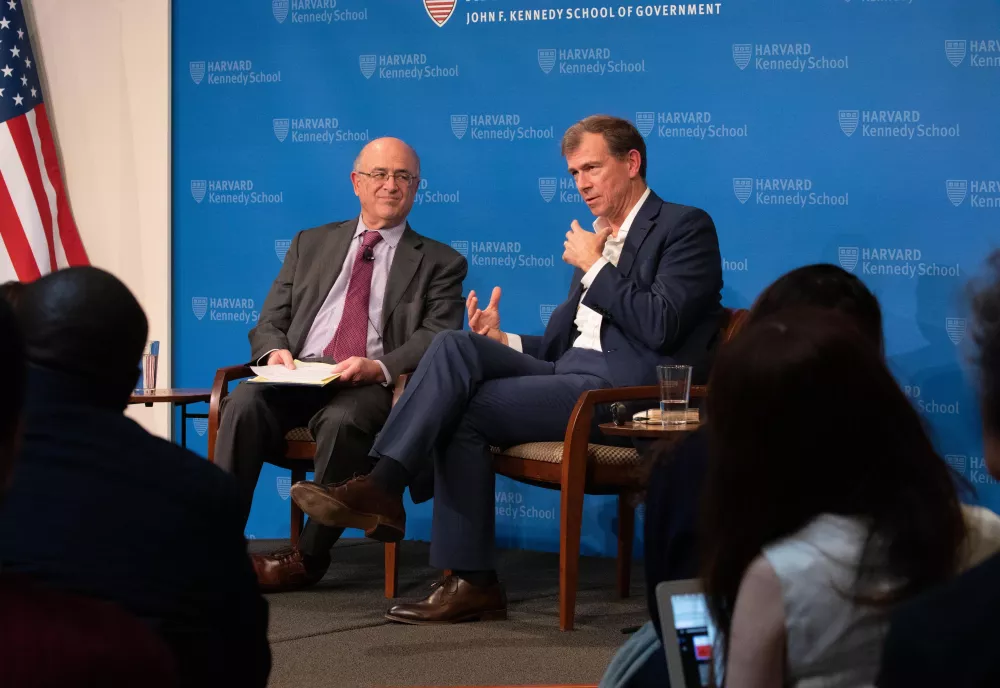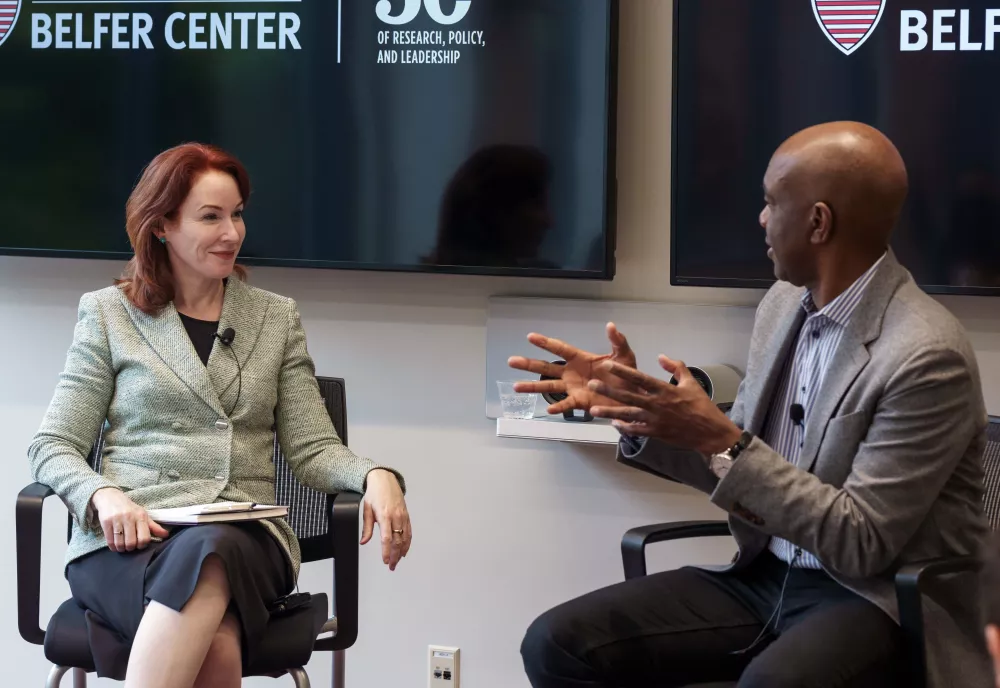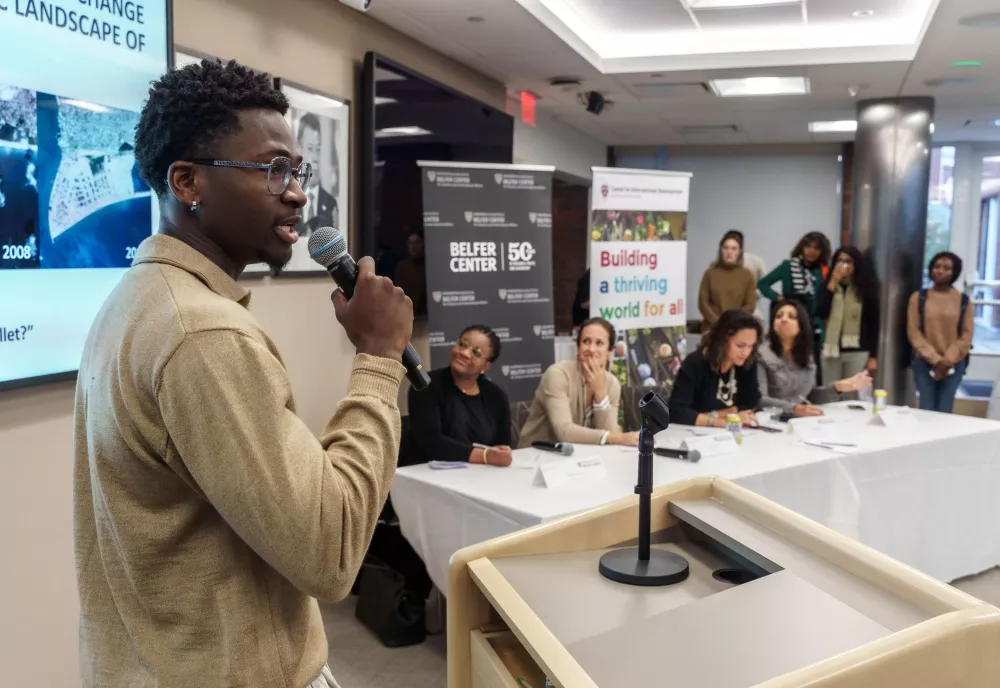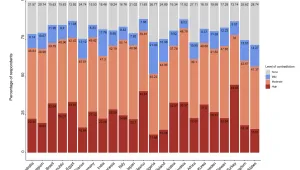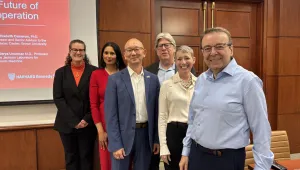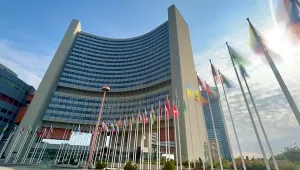
Research & Analysis

Global events move fast—The World Review podcast helps you keep up.
Listen to World Review: A Podcast with Ivo Daalder
Each Friday, former U.S. Ambassador to NATO Ivo Daalder brings together leading journalists and experts to break down what’s happening, why it matters, and what comes next.
A Belfer Center for Science and International Affairs podcast from Harvard Kennedy School.
Our Programs
Middle East & North Africa
-

-
Event Summary
The Struggle for Democracy in the Arab World
-
Reports & Papers
Risk, Leverage, Autonomy: Turkey’s Options in a U.S.–China World
Artificial Intelligence
-
 Policy Briefs
Policy BriefsAI, Data Centers, and the U.S. Electric Grid: A Watershed Moment
From Environment and Natural Resources
-
Event Summary
AI, Health, and the Future of Scientific Cooperation
-
Reports & Papers
Code, Command, and Conflict: Charting the Future of Military AI
Energy
Science & Technology
-
Presentations
Governing Solar Radiation Management in a Rapidly Changing Arctic
From Arctic Initiative
Interest Areas
Our research spans a variety of key issues across the globe, at the nexus of science and international affairs
All our research and analysis
12,001
results

